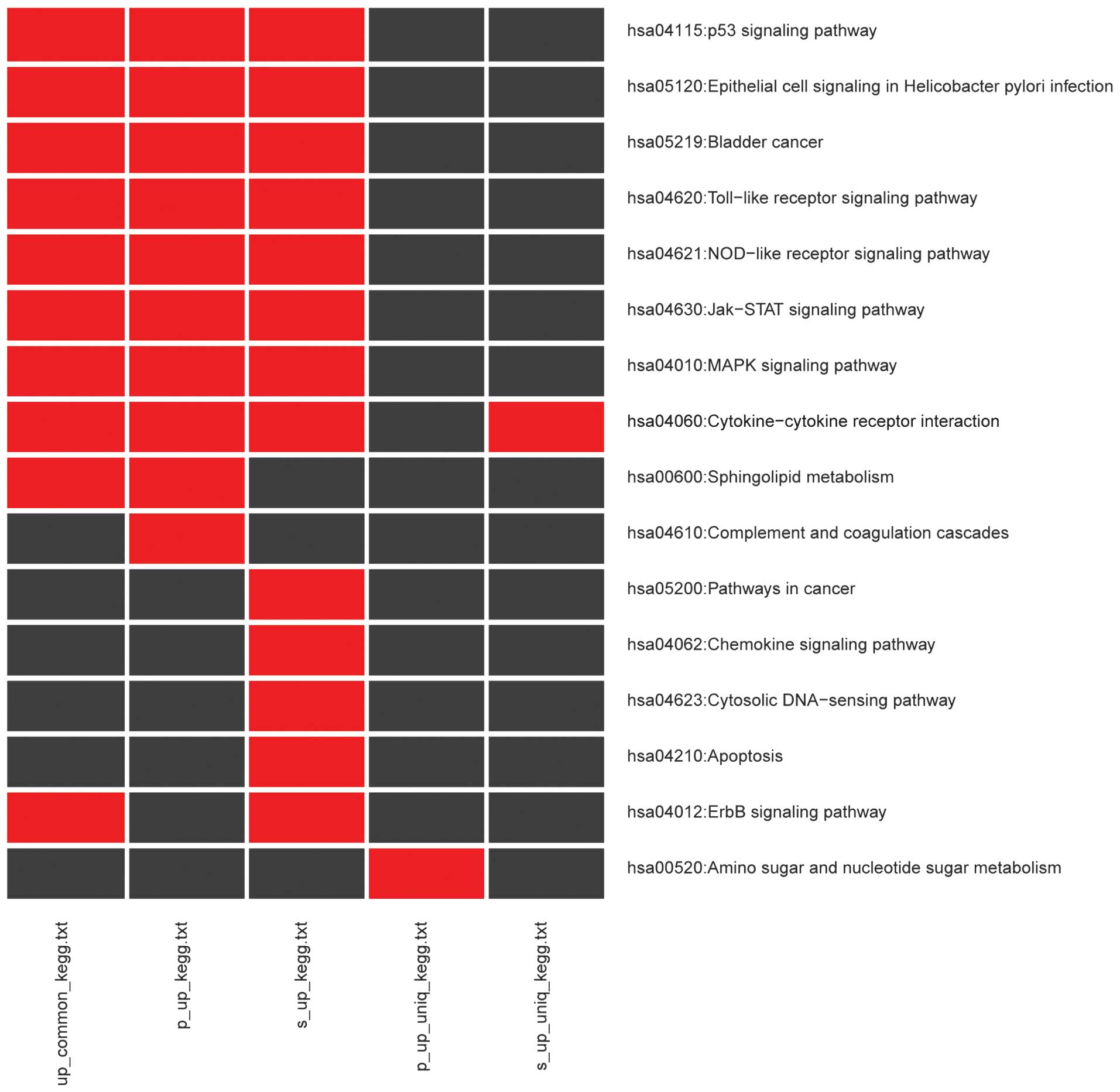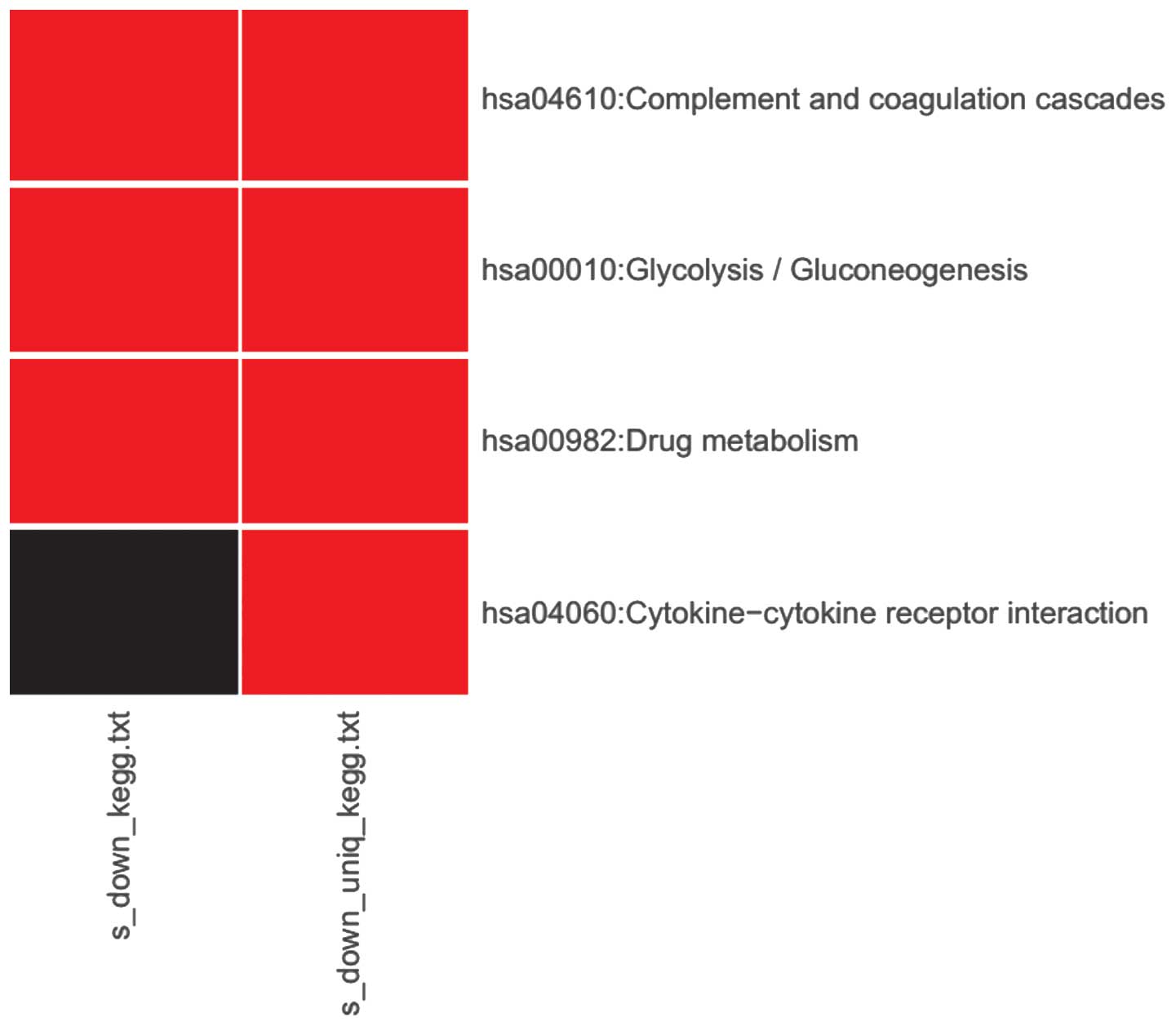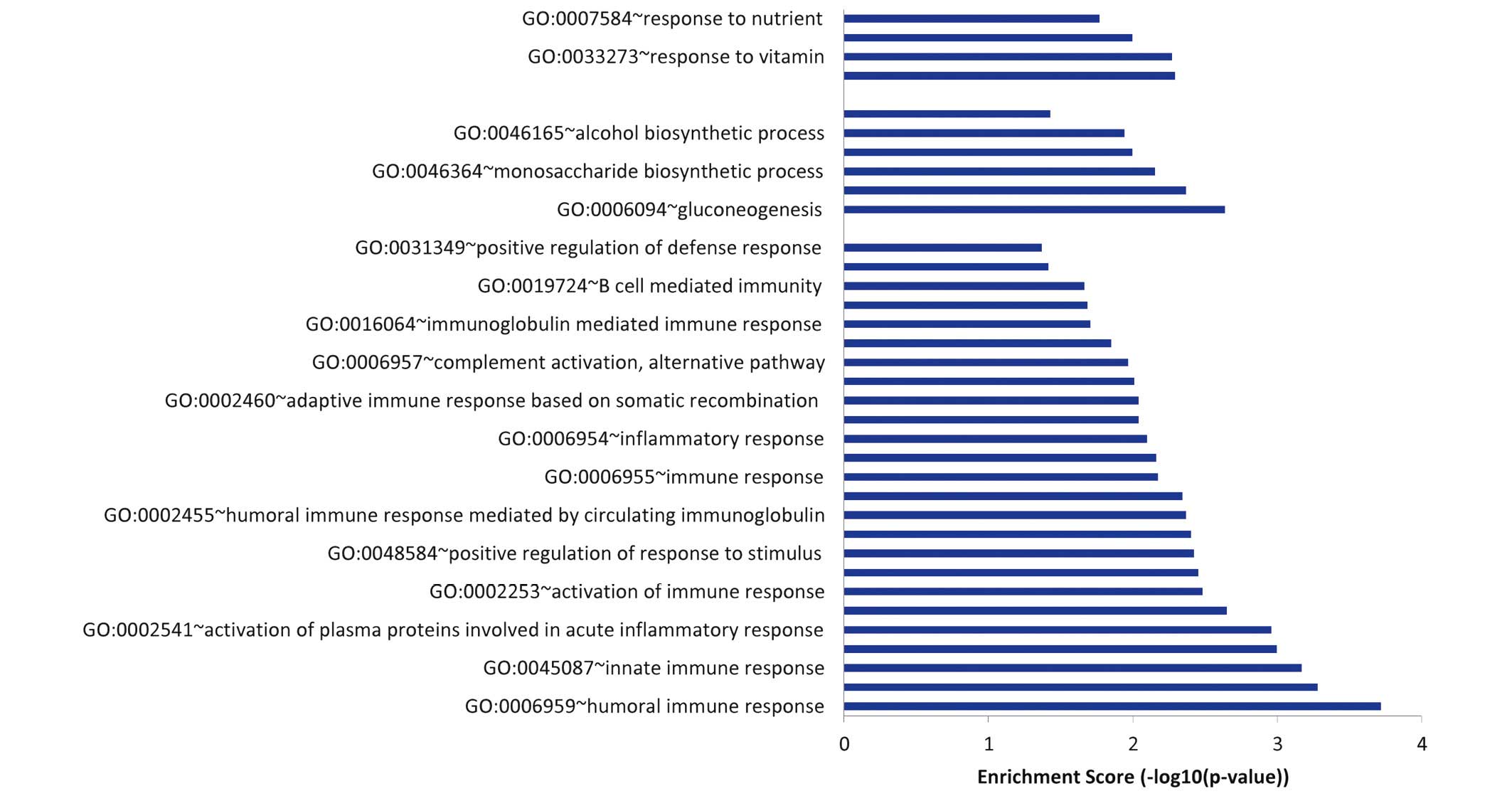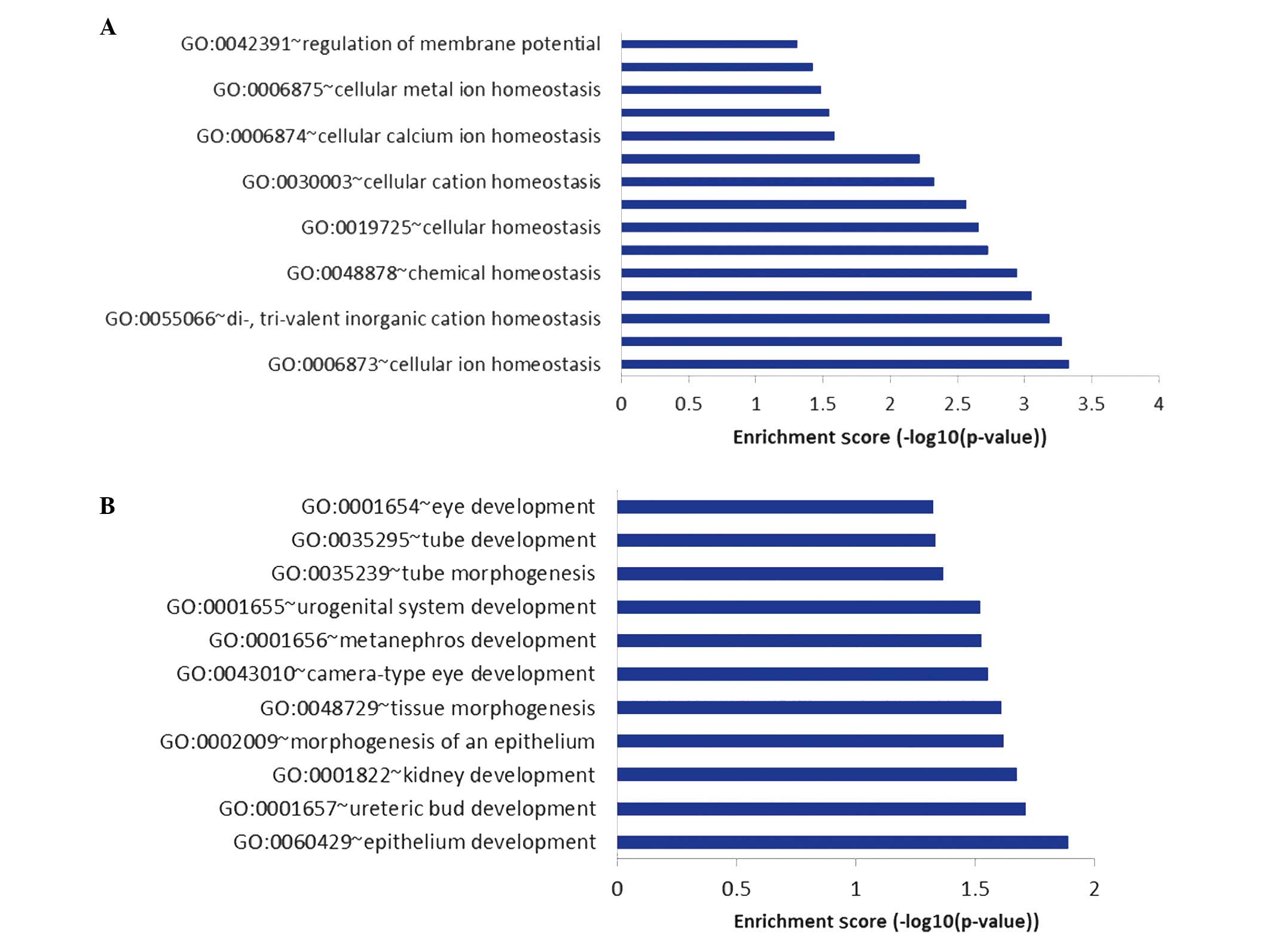|
1
|
Møller C, Penninga L, Wetterslev J,
Steinbrüchel D and Gluud C: Off-pump versus on-pump coronary artery
by-pass grafting for ischaemic heart disease. Cochrane Database
Syst Rev. 3:CD0072242012.PubMed/NCBI
|
|
2
|
Wang J, Zheng H, Chen CL, Lu W and Zhang
YQ: Sevoflurane at 1 MAC provides optimal myocardial protection
during off-pump CABG. Scand Cardiovasc J. 47:175–184. 2013.
View Article : Google Scholar : PubMed/NCBI
|
|
3
|
Hellström J, Öwall A, Bergström J and
Sackey P: Cardiac outcome after sevoflurane versus propofol
sedation following coronary bypass surgery, A pilot study. Acta
Anaesthesiol Scand. 55:460–467. 2011. View Article : Google Scholar : PubMed/NCBI
|
|
4
|
Gülçin I, Alici HA and Cesur M:
Determination of in vitro antioxidant and radical scavenging
activities of propofol. Chem Pharm Bull (Tokyo). 53:281–285. 2005.
View Article : Google Scholar : PubMed/NCBI
|
|
5
|
Marik PE: Propofol: Therapeutic
indications and side-effects. Curr Pharm Des. 10:3639–3649. 2004.
View Article : Google Scholar : PubMed/NCBI
|
|
6
|
Vakkuri A, Yli-Hankala A, Talja P, Mustola
S, Tolvanen-Laakso H, Sampson T and Viertiö-Oja H: Time-frequency
balanced spectral entropy as a measure of anesthetic drug effect in
central nervous system during sevoflurane, propofol and thiopental
anesthesia. Acta Anaesthesiol Scand. 48:145–153. 2004. View Article : Google Scholar : PubMed/NCBI
|
|
7
|
Sayin MM, Özatamer O, Taşöz R, Kilinc K
and Ünal N: Propofol attenuates myocardial lipid peroxidation
during coronary artery bypass grafting surgery. Br J Anaesth.
89:242–246. 2002. View Article : Google Scholar : PubMed/NCBI
|
|
8
|
Corcoran TB, Engel A, Sakamoto H, O'Shea
A, O'Callaghan-Enright S and Shorten G: The effects of propofol on
neutrophil function, lipid peroxidation and inflammatory response
during elective coronary artery bypass grafting in patients with
impaired ventricular function. Br J Anaesth. 97:825–831. 2006.
View Article : Google Scholar : PubMed/NCBI
|
|
9
|
Garcia C, Julier K, Bestmann L, Zollinger
A, von Segesser LK, Pasch T, Spahn DR and Zaugg M: Preconditioning
with sevoflurane decreases PECAM-1 expression and improves one-year
cardiovascular outcome in coronary artery bypass graft surgery. Br
J Anaesth. 94:159–165. 2005. View Article : Google Scholar : PubMed/NCBI
|
|
10
|
Lucchinetti E, da Silva R, Pasch T, Schaub
MC and Zaugg M: Anaesthetic preconditioning but not
postconditioning prevents early activation of the deleterious
cardiac remodelling programme, Evidence of opposing genomic
responses in cardioprotection by pre-and postconditioning. Br J
Anaesth. 95:140–152. 2005. View Article : Google Scholar : PubMed/NCBI
|
|
11
|
Yao YT and Li LH: Sevoflurane versus
propofol for myocardial protection in patients undergoing coronary
artery bypass grafting surgery, A meta-analysis of randomized
controlled trials. Chin Med Sci J. 24:133–141. 2009. View Article : Google Scholar : PubMed/NCBI
|
|
12
|
Landoni G, Biondi-Zoccai GG, Zangrillo A,
Bignami E, D'Avolio S, Marchetti C, Calabrò MG, Fochi O, Guarracino
F, Tritapepe L, et al: Desflurane and sevoflurane in cardiac
surgery: A meta-analysis of randomized clinical trials. J
Cardiothorac Vasc Anesth. 21:502–511. 2007. View Article : Google Scholar : PubMed/NCBI
|
|
13
|
Yu CH and Beattie WS: The effects of
volatile anesthetics on cardiac ischemic complications and
mortality in CABG, A meta-analysis. Can J Anaesth. 53:906–918.
2006. View Article : Google Scholar : PubMed/NCBI
|
|
14
|
Yao YT and Li LH: Sevoflurane versus
propofol for myocardial protection in patients undergoing coronary
artery bypass grafting surgery, A meta-analysis of randomized
controlled trials. Chin Med Sci J. 24:133–141. 2009. View Article : Google Scholar : PubMed/NCBI
|
|
15
|
Jakobsen CJ, Berg H, Hindsholm KB, Faddy N
and Sloth E: The influence of propofol versus sevoflurane
anesthesia on outcome in 10,535 cardiac surgical procedures. J
Cardiothorac Vasc Anesth. 21:664–671. 2007. View Article : Google Scholar : PubMed/NCBI
|
|
16
|
Jakobsen CJ, Berg H, Hindsholm KB, Faddy N
and Sloth E: The influence of propofol versus sevoflurane
anesthesia on outcome in 10,535 cardiac surgical procedures. J
Cardiothorac Vasc Anesth. 21:664–671. 2007. View Article : Google Scholar : PubMed/NCBI
|
|
17
|
Ballester M, Llorens J,
Garcia-de-la-Asuncion J, Perez-Griera J, Tebar E, Martinez-Leon J,
Belda J and Juez M: Myocardial oxidative stress protection by
sevoflurane vs. propofol, A randomised controlled study in patients
undergoing off-pump coronary artery bypass graft surgery. Eur J
Anaesthesiol. 28:874–881. 2011. View Article : Google Scholar : PubMed/NCBI
|
|
18
|
Yao YT and Li LH: Sevoflurane versus
propofol for myocardial protection in patients undergoing coronary
artery bypass grafting surgery, A meta-analysis of randomized
controlled trials. Chin Med Sci J. 24:133–141. 2009. View Article : Google Scholar : PubMed/NCBI
|
|
19
|
Lucchinetti E, Hofer C, Bestmann L,
Hersberger M, Feng J, Zhu M, Furrer L, Schaub MC, Tavakoli R,
Genoni M, et al: Gene regulatory control of myocardial energy
metabolism predicts postoperative cardiac function in patients
undergoing off-pump coronary artery bypass graft surgery:
Inhalational versus intravenous anesthetics. Anesthesiology.
106:444–457. 2007. View Article : Google Scholar : PubMed/NCBI
|
|
20
|
Barrett T, Suzek TO, Troup DB, Wilhite SE,
Ngau WC, Ledoux P, Rudnev D, Lash AE, Fujibuchi W and Edgar R: NCBI
GEO, Mining millions of expression profiles-database and tools.
Nucleic Acids Res. 33:(Database Issue). D562–D566. 2005. View Article : Google Scholar : PubMed/NCBI
|
|
21
|
Smyth GK: Linear models and empirical
bayes methods for assessing differential expression in microarray
experiments. Stat Appl Genet Mol Biol. 3:Article32004.PubMed/NCBI
|
|
22
|
Dennis G Jr, Sherman BT, Hosack DA, Yang
J, Gao W, Lane HC and Lempicki RA: DAVID: Database for annotation,
visualization and integrated discovery. Genome biol. 4:P32003.
View Article : Google Scholar : PubMed/NCBI
|
|
23
|
Soro M, Gallego L, Silva V, Ballester MT,
Lloréns J, Alvariño A, García-Perez ML, Pastor E, Aguilar G, Martí
FJ, et al: Cardioprotective effect of sevoflurane and propofol
during anaesthesia and the postoperative period in coronary bypass
graft surgery: a double-blind randomised study. Eur J Anaesthesiol.
29:561–569. 2012. View Article : Google Scholar : PubMed/NCBI
|
|
24
|
Wang J, Lei B, Popp S, Meng F, Cottrell J
and Kass I: Sevoflurane immediate preconditioning alters hypoxic
membrane potential changes in rat hippocampal slices and improves
recovery of CA1 pyramidal cells after hypoxia and global cerebral
ischemia. Neuroscience. 145:1097–1107. 2007. View Article : Google Scholar : PubMed/NCBI
|
|
25
|
Kehl F, Krolikowski JG, Tessmer JP, Pagel
PS, Warltier DC and Kersten JR: Increases in coronary collateral
blood flow produced by sevoflurane are mediated by
calcium-activated potassium (BKCa) channels in vivo.
Anesthesiology. 97:725–731. 2002. View Article : Google Scholar : PubMed/NCBI
|
|
26
|
Lee HT, Kim M, Jan M and Emala CW:
Anti-inflammatory and antinecrotic effects of the volatile
anesthetic sevoflurane in kidney proximal tubule cells. Am J
Physiol Renal Physiol. 291:F67–F78. 2006. View Article : Google Scholar : PubMed/NCBI
|
|
27
|
Sharma M, Ganguly NK, Chaturvedi G,
Thingnam SK, Majumdar S and Suri RK: A possible role of HSP70 in
mediating cardioprotection in patients undergoing CABG. Mol Cell
Biochem. 247:31–36. 2003. View Article : Google Scholar : PubMed/NCBI
|
|
28
|
Saho S, Kadota Y, Sameshima T, Miyao J,
Tsurumaru T and Yoshimura N: The effects of sevoflurane anesthesia
on insulin secretion and glucose metabolism in pigs. Anesth Analg.
84:1359–1365. 1997. View Article : Google Scholar : PubMed/NCBI
|
|
29
|
Ai M, Otokozawa S, Asztalos BF, White CC,
Cupples LA, Nakajima K, Lamon-Fava S, Wilson PW, Matsuzawa Y and
Schaefer EJ: Adiponectin. An independent risk factor for coronary
heart disease in men in the Framingham offspring study.
Atherosclerosis. 217:543–548. 2011. View Article : Google Scholar : PubMed/NCBI
|
|
30
|
Dybdahl B, Wahba A, Lien E, Flo TH, Waage
A, Qureshi N, Sellevold OF, Espevik T and Sundan A: Inflammatory
response after open heart surgery, Release of heat-shock protein 70
and signaling through toll-like receptor-4. Circulation.
105:685–690. 2002. View Article : Google Scholar : PubMed/NCBI
|
|
31
|
Akira S and Takeda K: Toll-like receptor
signalling. Nat Rev Immunol. 4:499–511. 2004. View Article : Google Scholar : PubMed/NCBI
|
|
32
|
Kanneganti TD, Lamkanfi M and Núñez G:
Intracellular NOD-like receptors in host defense and disease.
Immunity. 27:549–559. 2007. View Article : Google Scholar : PubMed/NCBI
|
|
33
|
Kaminska B: MAPK signalling pathways as
molecular targets for anti-inflammatory therapy-from molecular
mechanisms to therapeutic benefits. Biochim Biophys Acta.
1754:253–262. 2005. View Article : Google Scholar : PubMed/NCBI
|
|
34
|
Murray PJ: The JAK-STAT signaling pathway:
Input and output integration. J Immunol. 178:2623–2629. 2007.
View Article : Google Scholar : PubMed/NCBI
|
|
35
|
Appledorn DM, Patial S, McBride A,
Godbehere S, Van Rooijen N, Parameswaran N and Amalfitano A:
Adenovirus vector-induced innate inflammatory mediators, MAPK
signaling, as well as adaptive immune responses are dependent upon
both TLR2 and TLR9 in vivo. J Immunol. 181:2134–2144. 2008.
View Article : Google Scholar : PubMed/NCBI
|
|
36
|
Huang G, Shi LZ and Chi H: Regulation of
JNK and p38 MAPK in the immune system, Signal integration,
propagation and termination. Cytokine. 48:161–169. 2009. View Article : Google Scholar : PubMed/NCBI
|
|
37
|
Samadikhah J, Golzari SE, Sabermarouf B,
Karimzadeh I and Tizro P: MohammadK hanli H and Ghabili K: Efficacy
of combination therapy of statin and vitamin C in comparison with
statin in the prevention of post-CABG atrial fibrillation. Adv
Pharm Bull. 4:97–100. 2014.PubMed/NCBI
|
|
38
|
Baeke F, Takiishi T, Korf H, Gysemans C
and Mathieu C: Vitamin D, Modulator of the immune system. Curr Opin
Pharmacol. 10:482–496. 2010. View Article : Google Scholar : PubMed/NCBI
|



















